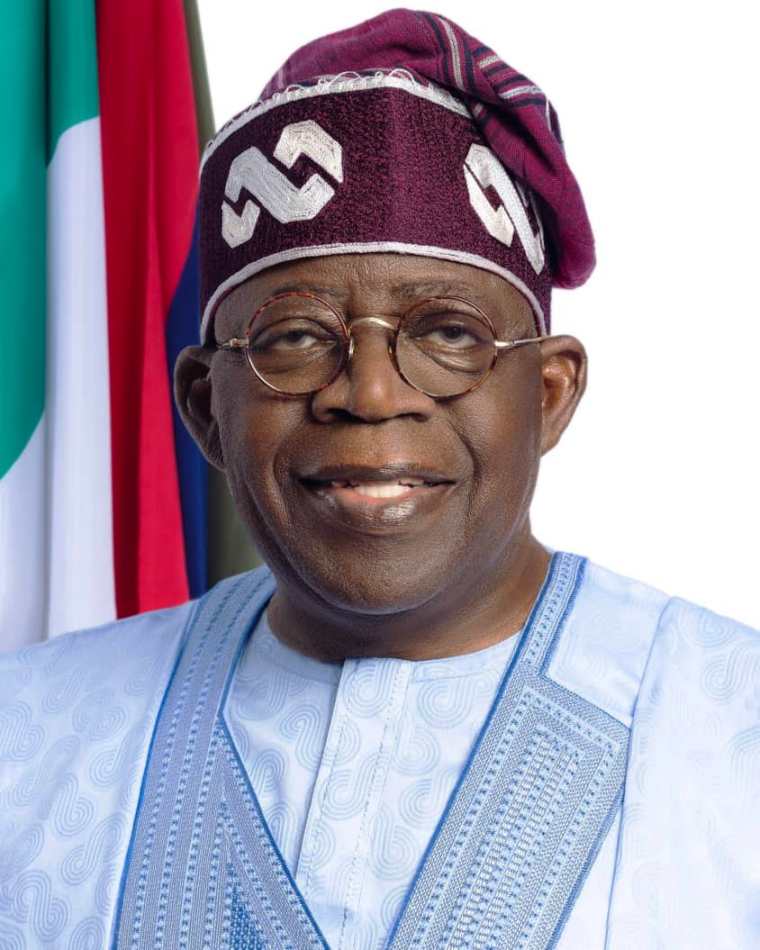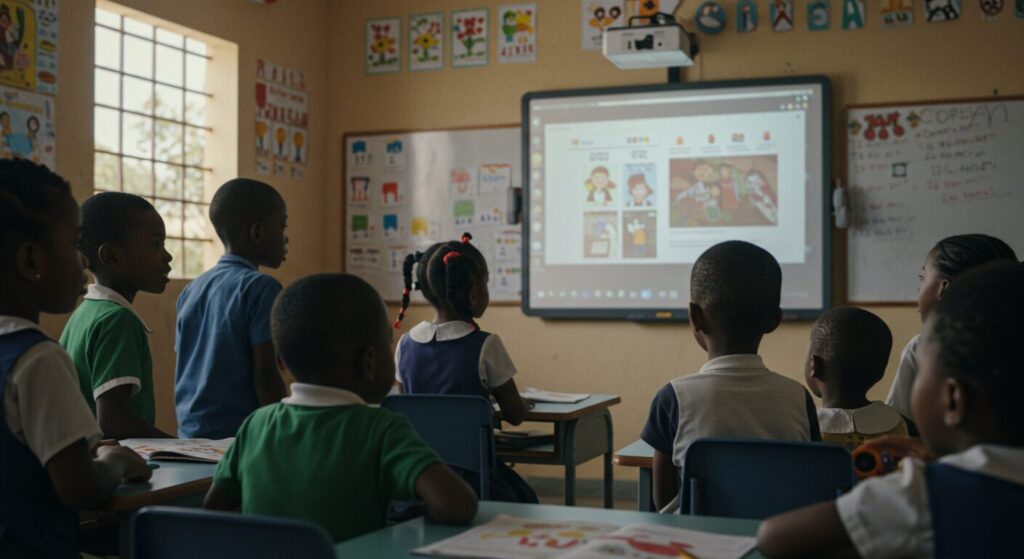President Bola Ahmed Tinubu has unveiled a National Child Protection Database and a Child Well-being Index as Nigeria is reinforcing its commitment to safeguarding children from abuse, exploitation, and violence.
President Tinubu, represented by Vice President Kashim Shettima, announced the launching of these data-driven tools during the inaugural regional meeting of Africa Pathfinder Countries of the Global Alliance on Ending Violence Against Children, held at the Presidential Villa, Abuja.
The landmark move is forming a centrepiece of Tinubu’s National Action Plan on Ending Violence Against Children in Nigeria, which he says is reshaping the country’s approach to child welfare by embedding accountability and transparency in every layer of intervention.

“Our legal frameworks reflect our conviction. From the Child Rights Act to the Violence Against Persons (Prohibition) Act, Nigeria has laid down the statutory foundation for the protection of children,” President Tinubu says. “But legislation alone does not shield the vulnerable—it is the will behind those laws, and the systems that enforce them, that make the difference.”
According to the President, the database and well-being index are enabling the government to “track progress and uphold accountability” in the fight against violence and neglect of children — an area where Nigeria continues to face daunting statistics despite existing legislation.
“Our legal frameworks reflect our conviction. From the Child Rights Act to the Violence Against Persons (Prohibition) Act, Nigeria has laid down the statutory foundation for the protection of children,” President Tinubu says. “But legislation alone does not shield the vulnerable—it is the will behind those laws, and the systems that enforce them, that make the difference.”
The President emphasises that the action plan is taking a sharp turn away from “mere policy recitations” and moving towards “concrete, deliberate action” rooted in systemic reform. “Our commitment must run deep, reaching into the very architecture of our education and health systems. This is the soul of our human capital development strategy,” he notes.
Children at the heart of national reform
For Nigerian families, the move is potentially changing the narrative on child vulnerability by tying together data, policy, and service delivery. The initiative is aiming to disrupt the cycle of poverty and neglect by implementing tangible support systems, such as the proposed Universal Child Grant designed to alleviate household poverty and reduce vulnerability among children.
The plan also includes the establishment of a dedicated Child Protection and Development Agency, expected to serve as a focal point for child-focused policies, programmes, and interventions across Nigeria.
Government institutions like the Federal Ministry of Women Affairs, led by Minister Imaan Sulaiman-Ibrahim, are being equipped to spearhead this national strategy. She confirms that through ongoing policy reviews, including the National Strategy and Costed Action Plan to End Child Marriage in Nigeria, the administration is building a more “accountable, inclusive, and data-driven” foundation for child protection.
“We are laying the groundwork for a coordinated response,” Sulaiman-Ibrahim says. “Through our renewed national child policy framework now under review, we are integrating measures that ensure the welfare of children becomes central to national planning and execution.”

Beyond promises: Global voices demand action
During the regional meeting, which is gathering high-level delegates from African nations, Dr. Najat Maalla M’jid, United Nations Special Representative of the Secretary General on Violence Against Children, urges African leaders to transition “beyond commitments” and adopt “concrete actions”.
Dr. M’jid is hailing Nigeria’s plan as a bold and necessary pivot towards prevention, early intervention, and behavioural change. She stresses the importance of confronting social norms that reinforce violence and exploitation, noting that systemic child protection is not just a domestic necessity but a continental imperative.
Delegations from Sierra Leone, Zimbabwe, Côte d’Ivoire, and Burkina Faso are showcasing their respective nations’ progress while endorsing Nigeria’s leadership in child protection. The regional body is calling for deliberate efforts across Africa to translate policy into protection — and words into action.
Why the database and index matter for Nigeria
With millions of children living in high-risk situations across Nigeria, the National Child Protection Database is being developed as a dynamic tool for capturing, monitoring, and analysing child protection data across all states and local governments. Its twin, the Child Well-being Index, is expected to benchmark living conditions, access to essential services, and overall quality of life of children in Nigeria.
Together, according to government, these tools are equipping the Nigerian government, civil society, and development partners with the data needed to direct resources more effectively and evaluate impact.
In practical terms, the database is expected to become a critical resource for:
- Tracking reported cases of violence, abuse, and neglect
- Measuring responses and intervention timelines across states
- Identifying high-risk demographics and regions
- Planning budgetary and human resources allocation for child services
- Enabling transparency and public reporting.
President Tinubu’s emphasis on “data-driven governance” is setting the tone for a more informed approach to tackling violence against children — one that recognises that policy without evidence is merely symbolic.
Public engagement and national campaigns
As Nigeria moves into implementation mode, public engagement is playing a key role. National campaigns to promote positive parenting, eliminate harmful social norms, and encourage citizen reporting are being launched under the new action plan.
President Tinubu is also urging families, communities, and civil society organisations to take ownership of the movement, stating that “a child’s safety is the collective responsibility of the entire society.”
In rural areas where child marriage, forced labour, and corporal punishment remain prevalent, advocacy campaigns are being tailored to reflect local cultures and communication channels. Faith leaders, traditional rulers, and media organisations are being mobilised to amplify messages of protection, equality, and opportunity.
The Federal Ministry of Women Affairs says it is training child protection officers and social workers across Nigeria, using the new frameworks to guide case management, legal enforcement, and victim support.
Securing the future of Nigerian children
Nigeria’s child protection reforms are coming at a time when global development partners are urging nations to prioritise investments in children as part of long-term human capital development.
President Tinubu is aligning Nigeria’s child protection architecture with the broader goals of Vision 2030, which includes building a knowledge-driven economy anchored in inclusive and equitable development.
In the face of challenges such as poverty, insecurity, gender inequality, and under-resourced schools and healthcare, Nigerian children often face the harshest outcomes. By linking protection efforts with national development strategies, the Tinubu administration is signalling that the well-being of children is now a measure of governance performance.
What comes next?
As implementation begins, the success of the action plan will depend heavily on collaboration between federal and state governments, community-based actors, and international partners. The need for consistent funding, institutional reforms, and accountability mechanisms will determine whether the plan delivers tangible results or remains aspirational.
President Tinubu’s administration is pledging to take the steps needed to ensure that “no child is left behind.” With the launch of the Child Protection Database and Well-being Index, Nigeria is entering a new era where the rights and dignity of its youngest citizens are taking centre stage in national development.
Source of Article

